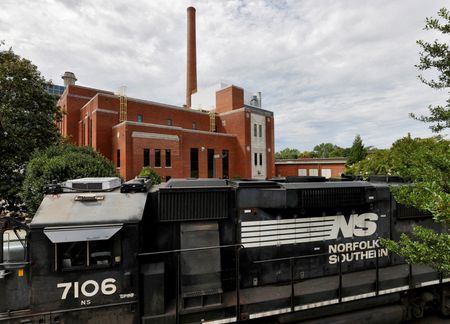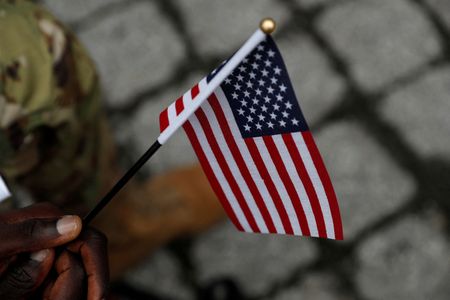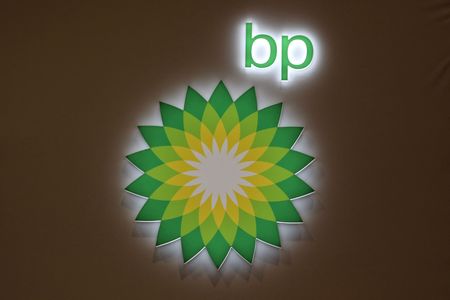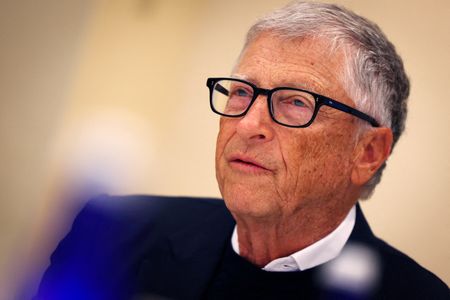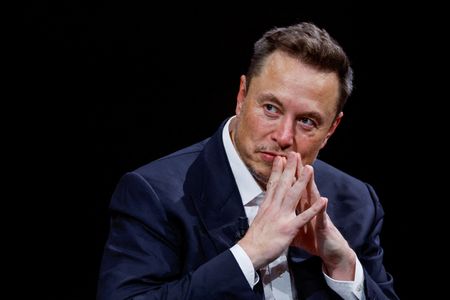By Emma-Victoria Farr and Amy-Jo Crowley
LONDON (Reuters) – Global dealmaking has reached $2.6 trillion, the highest for the first seven months of the year since the 2021 pandemic-era peak, as a quest for growth in corporate boardrooms and the impact of a surge in AI activity has overcome the uncertainty caused by U.S. tariffs.
The number of transactions to August 1 is 16% lower than the same time last year, but their value is 28% higher, according to Dealogic data, boosted by U.S. megadeals valued at more than $10 billion.
They include Union Pacific Corp’s proposed $85 billion acquisition of small rival Norfolk Southern and OpenAI’s $40 billion funding round led by Softbank Group.
The upsurge will be a relief to bankers who began the year with expectations the administration of U.S. President Donald Trump would lead to a wave of consolidation.
Instead, his trade tariffs and geopolitical uncertainty made companies pause until renewed confidence in corporate boardrooms and the U.S. administration’s anti-trust agenda changed the mood.
“What you’re seeing in terms of deal rationale for transactions right now is that it’s heavily growth-motivated, and it’s increasing,” Andre Veissid, EY Global Financial Services Strategy and Transactions Leader, told Reuters.
“Whether it’s artificial intelligence, the change in the regulatory environment, we see our clients not wanting to be left behind in that race and that’s driving activity.”
Compared with August 2021, when investors, rebounding from pandemic lockdowns drove the value of deals to $3.57 trillion, this year’s tally is nearly a $1 trillion, or 27%, lower.
Still deal-makers at JPMorgan Chase JP Morgan Chase have said there is more to come, with companies pursuing bigger deals in the second half of the year as executives adapt to volatility.
“People have got used to the prevailing uncertainty, or maybe the unpredictability post-U.S. election is just more predictable now,” Simon Nicholls, co-head of Slaughter and May Corporate and M&A group, said.
Nigel Wellings, Partner at Clifford Chance said the market was moving beyond tariffs. “Boardrooms are seeing the M&A opportunity of a more stable economic environment and positive regulatory signals. But it is not a frothy market.”
FROM HEALTH TO TECH
While the healthcare sector drove M&A in the years after the pandemic, the computer and electronics industry has produced more takeover bids in the U.S. and the United Kingdom in the last two years, according to Dealogic.
Artificial intelligence is expected to drive more dealmaking. M&A activity has increased around data centre usage, such as Samsung’s $1.7 billion acquisition of Germany’s FlaktGroup, a data centre cooling specialist.
Palo Alto Networks $25 billion deal for Israeli cybersecurity peer CyberArk was the largest deal in Europe, Middle East and Africa so far this year as rising AI-driven threats push companies to adopt stronger defences.
Private equity, which had been sitting on the sidelines, has once again been active, with Sycamore Partners’ $10 billion deal to take private Walgreens Boots Alliance and a sweetened $6.4 billion offer from Advent for UK scientific instrument maker Spectris.
The U.S. was the biggest market for M&A, accounting for more than half of the global activity. Asia Pacific’s dealmaking doubled over the same year to date period last year, outpacing the EMEA region.
(Reporting by Emma-Victoria Farr and Amy-Jo Crowley in London, writing by Anousha Sakoui. Editing by Barbara Lewis)

